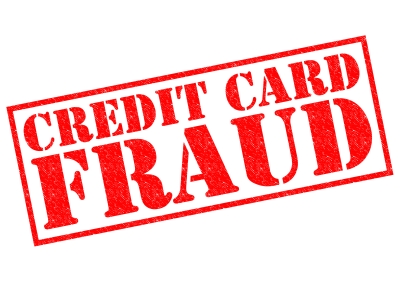
Examples of Online or CNP Fraud in the Lodging Industry
Just as there are several definitions and classifications used to define fraud and related chargebacks, there are even more ways that fraud can be perpetrated on lodging entities. Here are just a few examples & types of fraud, that you should be on the lookout for:
Contact-less Check-in (True Fraud): To make the process of checking in as easy and safe as possible for customers in the era of COVID, lodging managers may have opened the door for fraud. Some managers have used electronic locks, online apps, and texting key codes to implement digital check-in where a customer can bypass the traditional front desk check-in. While this may improve customer experience and provide a level of perceived safety, fraudsters can now use stolen credentials and have no problem at the front desk where they may need to present the physical card or ID that was used to book the stay.
Card Testing (True Fraud): When a criminal gets a hold of stolen credit card information, it is a common practice to test the card to make sure it is still active. One all too common way to do this is to make a very small online purchase or to get an authorization to go through on the card. This is when rental managers become a target. Criminals will attempt to reserve a room for a future date to see if the card will be authorized, if it is they will move on to selling the stolen credentials or use the card to make a purchase. By the time the reserved stay comes around, the card has most likely been shut off which leaves merchants turning away actual customers. This is more prevalent in a hotel/motel/resort atmosphere where guests do not get charged until upon arrival.
Chargeback Fraud (Hostile Friendly Fraud): This fraudulent request for a return or refund in the form of a chargeback happens when a transaction is disputed by the cardholder to regain the transaction dollar amount while retaining the product or services rendered. For lodging merchants, this is when a customer stayed at the hotel then disputes the charge to attempt to get their money back. This type of dispute is winnable for merchants by submitting a compelling dispute response.
Failure to Cancel/No-Show (Friendly Fraud): A traveler neglects to cancel their reservation in accordance with the manager’s cancellation, but do not believe they should be responsible for the charge since they did not use the rental.
Unsatisfactory Experience (Friendly Fraud): A traveler uses the lodging but makes a claim that they are due a refund or compensation due to a negative experience. It is important to note that the claims can be either fraudulent or legitimate. As noted above there are actors who will use the fact that credit card processes favor the cardholder to attempt to get an unwarranted refund.
Business Name Not Recognized (Friendly Fraud): This happens when the cardholder does not recognize the charge from the business name on their statement. Generally, this happens when a business uses a corporate name for their banking, but a DBA for public-facing business. For example, the guest rented with ABC Vacation Rentals, but the credit card statement shows XYZ Associates, LLC.
Unexpected/Unrecognized Charges (Friendly Fraud): There may be times when guests see unexpected charges on their statements (linen rentals, deposits, late check-out) that are outside of the charges they expected from their original booking and they file a chargeback. Often, these charges are valid and may have been authorized by family members or traveling party and the rental manager used the tokenized ‘card on file’. In a hotel/resort setting, it often revolves around food & beverage or gift shop purchases.
Billing Disagreement (Friendly Fraud): If the guest feels like they have been over-charged for their accommodations based upon their understanding of the agreed upon rate. These disputes tend to revolve around taxes, resort fees or other mandatory fees that many exist outside the advertised daily rate.
Damage Dispute (Friendly Fraud): A rental manager may charge the card-on-file for damages or stolen items during the stay. If the guest disagrees, they may dispute the charges.
Non-Use of The Rental (Friendly Fraud): This dispute reason has certainly risen in 2020, but has existed for many years. In the past, it generally revolved around weather-related events that made the property unavailable, or in the opinion of the guest, the trip untenable due to weather or other circumstances. Generally, the reasons fall outside the cancellation policy of the lodging manager and the guests did not purchase travel insurance. In 2020, we have seen a marked increase in chargebacks that could be considered Friendly Fraud due to the COVID-19 Pandemic.
If you have questions or want more information on our excellent chargeback support, fill in the form on this page or contact us at info@ascentpaymentsolutions.com.
Categories
Share This Content